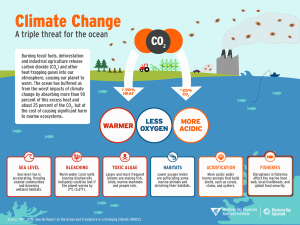The journey of global health is a testament to humanity’s relentless pursuit of universal health equity. This journey, marked by both challenges and milestones, reflects the evolution of global health as a discipline and a movement. From the eradication of smallpox to the ongoing battle against HIV/AIDS, the landscape of global health has been shaped
The journey of global health is a testament to humanity’s relentless pursuit of universal health equity. This journey, marked by both challenges and milestones, reflects the evolution of global health as a discipline and a movement. From the eradication of smallpox to the ongoing battle against HIV/AIDS, the landscape of global health has been shaped by our collective experiences and actions. As we navigate through this journey, it is important to recognize the foundations that have laid the groundwork for today’s efforts and the challenges that continue to shape our path forward.
The Foundations of Global Health
Global health’s evolution is a mirror reflecting humanity’s journey towards universal health equity. This journey has been long and arduous, marked by significant challenges and milestones that have shaped our collective endeavor. From the establishment of the World Health Organization (WHO) to the declaration of health as a human right in the Universal Declaration of Human Rights, the foundations of global health have been built on the principles of equity, access, and collaboration. These foundations remind us that health is not just the absence of disease, but a state of complete physical, mental, and social well-being.
Key Global Health Threats in the 21st Century
As we venture further into the 21st century, the landscape of global health threats continues to evolve. Climate change, for instance, exacerbates the spread of infectious diseases worldwide, presenting a formidable challenge to global health security. The warming planet has led to expanded habitats for vectors like mosquitoes, increasing the spread of diseases such as malaria and dengue fever. Additionally, technological advancements, while offering unprecedented opportunities for improving healthcare delivery and outcomes, also pose a double-edged sword. The digital divide and the potential for misuse of health data are just some of the challenges at the intersection of technology and healthcare.
International Collaboration for Health Improvement

Image by : Yandex.com
The journey of global health is not one that can be undertaken alone. International collaboration enhances shared knowledge for better outcomes, allowing countries and organizations to learn from each other’s successes and failures. Joint efforts in the global health journey are crucial to combat worldwide health disparities. Initiatives such as Gavi, the Vaccine Alliance, and the Global Fund to Fight AIDS, Tuberculosis and Malaria are prime examples of how collaborative efforts can lead to significant improvements in global health.
Advancements in Global Health Research
Innovative research and technology have been driving forces in the improvements observed in global health. From the development of vaccines to the use of artificial intelligence in diagnosing diseases, advancements in global health research have paved the way for significant milestones. However, this journey is also fraught with challenges, including ethical considerations in research and the need for equitable access to the benefits of technological advancements.
Public Health Policies and Their Global Implications
The journey towards better health outcomes is significantly shaped by public health policies. Decisions made at the national and international levels have far-reaching implications for global health. Policies that prioritize healthcare access and affordability, for instance, can have a profound impact on global health equity. Conversely, policies that neglect the social determinants of health can exacerbate health disparities, underscoring the importance of informed and inclusive public health policymaking.
The Impact of Climate Change on Global Health

Image by : Yandex.com
Climate change is not just an environmental issue; it is a pressing global health challenge. The impact of climate change on global health is multifaceted, magnifying existing health threats and creating new challenges. From increased heatwaves affecting vulnerable populations to the disruption of food systems leading to malnutrition, climate change is reshaping global health priorities and requiring a concerted response from the global health community.
Educational Initiatives for Global Health Awareness
Raising awareness about global health issues is a critical component of the journey towards improved health outcomes. Educational initiatives play a key role in enhancing global health awareness, empowering individuals and communities with the knowledge needed to make informed health decisions. Collaborative efforts, such as public health campaigns and community-based education programs, are essential in addressing global health disparities and building a more health-literate society.
Emerging Challenges and Opportunities in Global Health
The global health landscape is constantly evolving, presenting new challenges and opportunities. Infectious disease outbreaks, non-communicable diseases, and the health impacts of conflict and migration are just some of the issues that require innovative solutions and collaboration. At the same time, opportunities in global health, such as the potential for cross-sector partnerships and the use of digital health technologies, pave the way for transformative journeys in health and well-being.
As we reflect on the journey of global health, it is clear that the path ahead is both challenging and promising. The foundations laid by past efforts provide a strong basis for addressing current and future health threats, but achieving universal health equity will require continued innovation, collaboration, and commitment. The journey of global health is a shared one, and together, we can forge a healthier future for all.
















